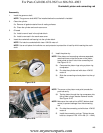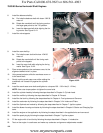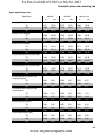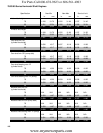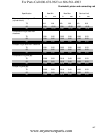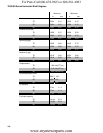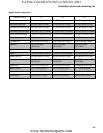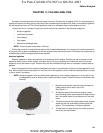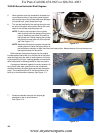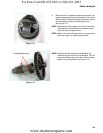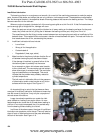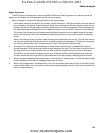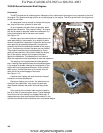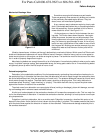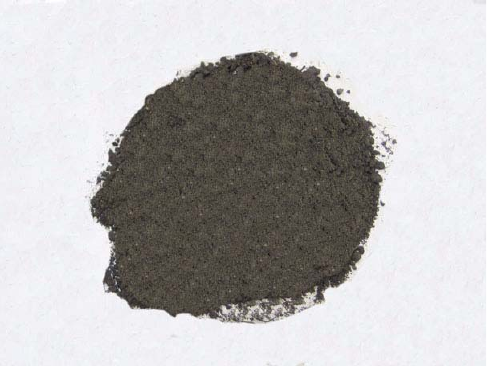
Failure Analysis
121
A properly maintained engine will provide years of service. Occasionally an engine will fail. An important part of
working on engines is finding out why they failed. Was it something the customer did? Was it a manufacturing defect?
Did the engine just wear out? All of these questions need to be answered when a failed engine is found.
Engines can fail in a variety of ways but most failures can be classified in the following categories:
• Abrasive ingestion
• Insufficient lubrication
• Over heating
• Over speed
• Mechanical breakage/ wear
NOTE: There may be a combination of failures.
Finding the cause of an engine failure requires the complete disassembly of an engine and careful examination
of the parts. With a good understanding of how the engine works, close examination of the parts and experience, an
understanding of why the engine failed can be reached.
Abrasive Ingestion
Abrasive Ingestion is when hard particles are introduced into the engine. Particles can be introduced into the
engine by leaks in the air intake system, through a dirty oil fill plug or by particles of metal that wore off of a part,
especially during the break in cycle. Particles may also be introduced through worn or improperly installed seals or
gaskets.
Some of the engines in this series are designed to be used on snow blowers so they are not equipped with an air
filter. When used for snow blowing there is very little risk of dirt ingestion from the intake air because there is no dust
in the air when it is snowing.
NOTE: Abrasive ingestion from the intake system generally is from using the equipment in a way that it was
not designed for such as blowing hay or cleaning chicken coops. These failures are not covered under
warranty.
1. Abrasive particles that enter the engine through the
intake system can be sand, hay or dirt.
See Figure 11.1.
2. An abrasive particle that enter the engine usually
leave tracking marks were the particles enter the sys
-
tem. Use these marks to find the source of the abra-
sives.
3. Particles that enter the intake system travel at great
speed and act like sand blasting media inside the
engine. This causes wear to the parts affected.
4. The particles can pass through the intake system to
the valves and valve seats.
Figure 11.1
CHAPTER 11: FAILURE ANALYSIS
For Parts Call 606-678-9623 or 606-561-4983
www.mymowerparts.com



